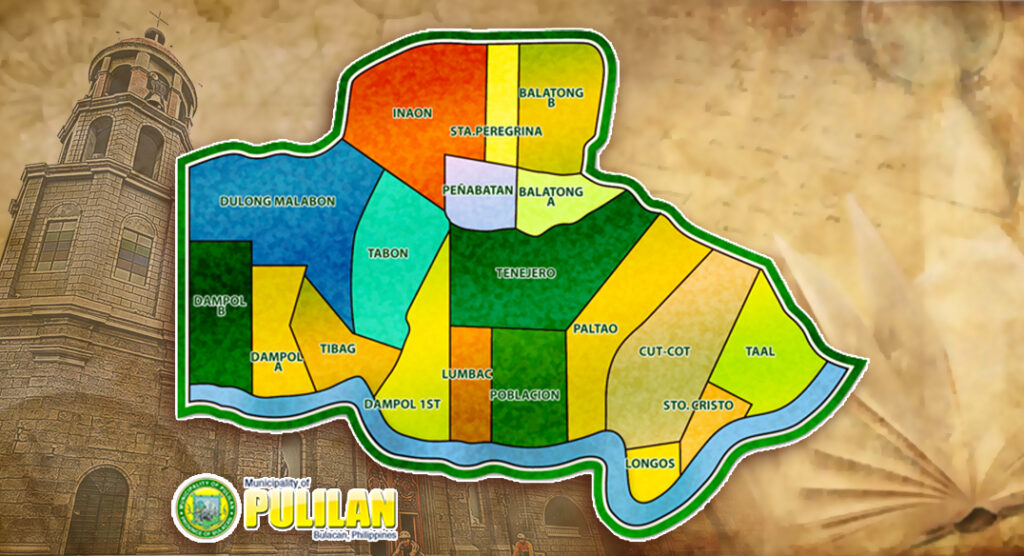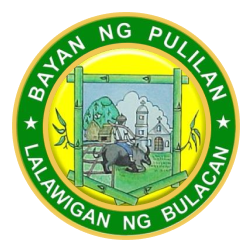
Pulilan is one of the 24 towns of Bulacan province, located in about its center—from north to South—with an area of about 3,000 hectares. It is bounded on the North by Apalit in Pampanga; on the East by Baliuag; on the South by Plaridel; and on the West by Calumpit. The Angat River cutting its way through the Eastern edge of Baliuag, and the Southern fringes of Pulilan down to the tributary of Manila Bay Southwest of Calumpit, serves as the boundary with Plaridel. Its feature is flat and the soil is suited to farming.
The first time Pulilan was settled was unknown but if existing records of the towns of Calumpit and Baliuag, between which the town lies, be made a basis, it could be deduced that in the early part of the 17th century it could have had a sprinkling of settlers. (Calumpit was declared s town in 1575, and Baliuag recently celebrated her 300th anniversary). It is presumed that the settlers spread themselves in far-apart groups along the riverbanks for two reasons: first, water facility secondly, the profound attraction of water to them. The word “Tagalog” in a contraction of “taga-ilog” a name ascribed to this ethnic group of Malays who had the reputation for cleanliness through their profuse use of water.
After long period of severe inculcation of foreign powers’ lustful and licentious personal policies I politics and, perhaps, from an assumed contention that the inhabitants were thoroughly insured to their power, an Augustinian friar, Fray Vicente Villamanzo, was made to declare the settlement a town in January 20, 1796. It was assigned a patron saint, San Isidro Labrador, after whose name he wanted the town identified. The name however, did not prevail over the popularity known epitaph “Pulo ng Ilan” which later gained favor in its contracted from “Pulilan”.
From the Spanish time to American occupation and lately the Japanese era, many sons of the town of Pulilan shed their blood. After long march to freedom, Pulilenos started to build from its small beginnings and from then on made a great stride in politics, economy, social standing and in other fields.
From the time the nation acquired its Independence, the inhabitants of Pulilan have committed themselves in a determined effort to improve their lot. The regimentation of Spanish colonialism, the benevolence of American tutelage, the tough experience they gained from the ruthless Japanese, have in a measure, contributed to the promotion of their welfare. But the Pulilenos, as they are known, treasure their great heritage.




